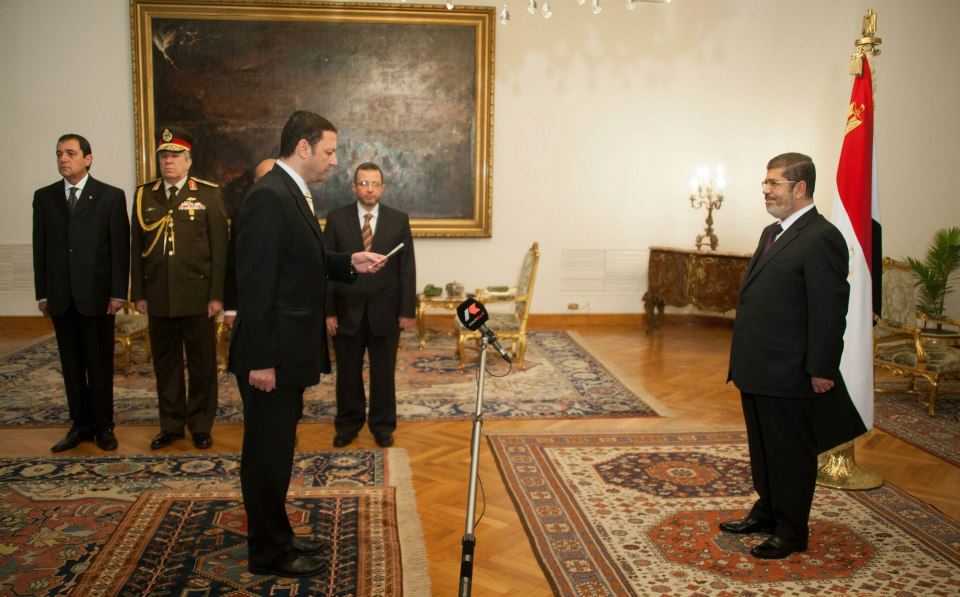
Reaction to the appointment of 10 new ministers in Hesham Qandil’s cabinet was mostly negative, as political movements voiced their scepticism.
Heba Yassin, spokesperson of the Popular Current, said: “The changes prove that the current regime persists in the policy of picking the safe option rather than the efficient one.” The Popular Current is one of the members of the National Salvation Front (NSF).
Yassin stated that the changes revealed the Muslim Brotherhood’s insistent attempt to dominate state institutions. She added that the changes also seemed to be in preparation for two major events expected to take place soon; the second anniversary of the 25 January revolution and the parliamentary elections.
Yassin said: “The decision to remove former Minister of Interior Ahmed Gamal Al-Din and replace him with Mohamed Ibrahim comes off as a possible antidote to the 25 January anniversary.” She mentioned that despite the current’s reservations about Gamal Al-Din, he has refused to violently break up several protests, especially those near the Presidential Palace. “Apparently the Muslim Brotherhood didn’t like such actions; they want someone who will crack down on protests with an iron fist.”
As for the parliamentary elections, Yassin said that the choice of Brotherhood leader Mohamed Ali Beshr to lead the Ministry of State for Local Development shows an attempt to control local governorates. She added that appointing a Brotherhood member to lead the ministry suggests manipulation during the parliamentary elections.
Yassin does not expect that the latest Cabinet changes will offer any solutions to the problems Egypt is currently facing. This opinion was also shared by Al-Wasat party, whose representative resigned from Qandil’s cabinet over a week ago, to be replaced Saturday by Amr Salem as minister of legal and parliamentary affairs.
Party spokesperson Amr Farouk said: “Al-Wasat has a basic position toward Qandil’s cabinet [which we] maintained before the latest changes.” He said that Qandil’s cabinet failed to lead the transitional period both on the political and economic level: “We need a different prime minister with a political background.”
Farouk nevertheless insisted that Al-Wasat would continue to support the Cabinet by offering ideas and solutions yet not through physical participation.
6 April party, which has yet to be officially launched, also criticised the reshuffle. The party said in a statement that the changes are part of a pattern of attempting to take over the coming lower house of parliament.
“The changes saw the appointment of Muslim Brotherhood ministers in important ministries such as the Ministry of State for Local Development, the Ministry of Finance and the Ministry of Electricity.” The group also believes that removing Gamal Al-Din from his post is punishment for refusing to crack-down on protesters.
The head of the Freedom and Justice Party (FJP) Sa’ad Al-Katatny meanwhile called on political movements to support the new Cabinet formation regardless of whether or not they approve of the latest appointments.
“The FJP offers the expertise of all its members at the disposal of the new Cabinet and vows to offer all its support until the Egyptians successfully pass the transitional period,” Al-Katatny said in a statement released on the FJP’s official Facebook page. He also suggested that the Cabinet holds negotiations with political movements in important matters, and to avoid individual decision-making.


